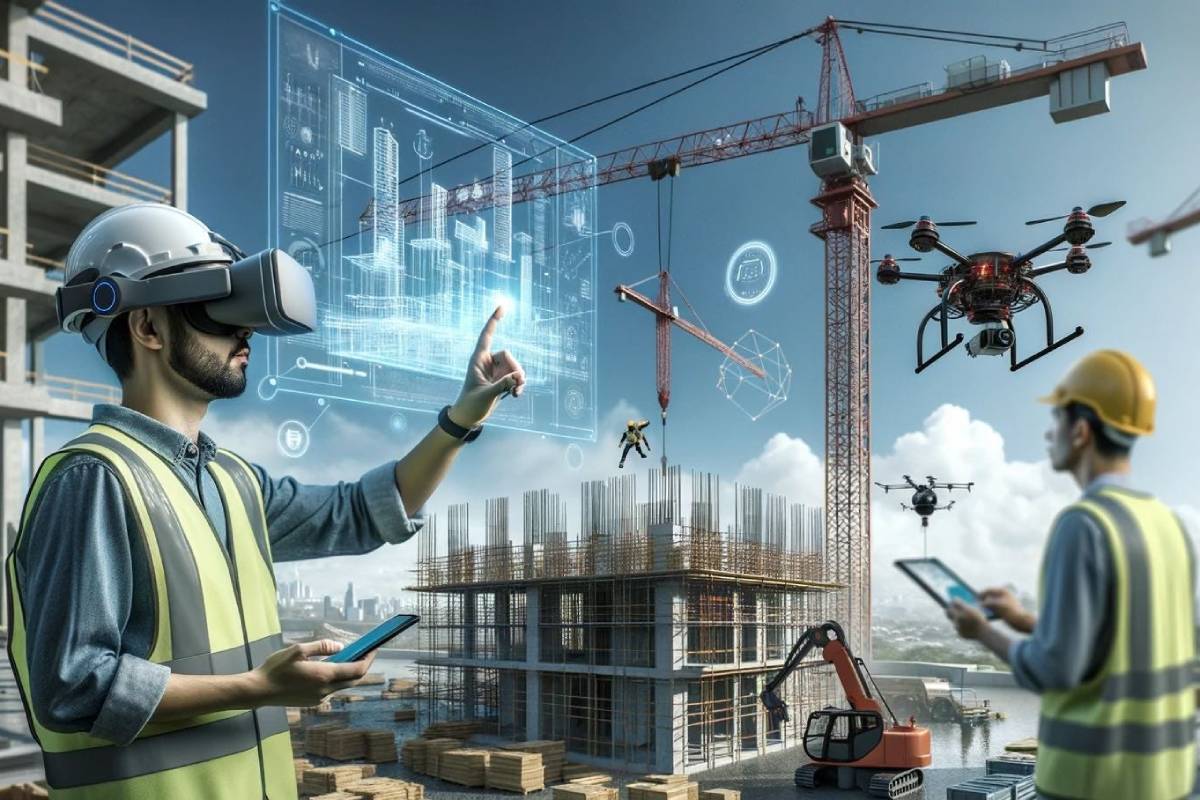The construction sector always strives to build stronger, taller, or better buildings. Technological advancements in construction have been a helpful asset in this endeavor. What is now considered staples at a construction site were revolutionary 60 to 90 years ago.
For instance, the invention of the best mini excavator mulcher really helped Japan’s urbanization and house boom in the 1960s when an establishment known as Yanmar Construction Company constructed the first diesel-powered and wheeled machine.
This replaced workers using pickaxes, which can fit in various areas, including those with limited access. These days, companies use the same principles with technological advancements in construction.
Technologies Revolutionizing the Construction Industry
Technologies play a vital role in the continued growth of many construction companies in the industry. Perfect examples of these technologies include the following:
- Data collection apps
- Robots and drones
- AR and VR
- AI
- 3D printing
How Technology Revolutionizes the Construction Industry
The construction technology is revolutionizing the construction industry in great ways. Here is how technology is transforming the sector:
1. Design
Construction workers use digital software to create technical and detailed drawings, which help them meet clients’ exact dimensions and specifications.
In modern architectural settings, mechanical software programs create digital drawings. For instance, residential and commercial architects worldwide use CAD (computer-aided design).
2. Construction Equipment and Techniques
Technological advancements have introduced various construction equipment and techniques, transforming buildings’ construction.
Advanced robotics and machines have minimized labor expenses, enhanced safety, and improved productivity on many construction sites.
For instance, employees use drones for inspections, monitoring progress, and aerial surveys, offering invaluable imagery and data. If you also start with the land-clearing process before construction starts, technology presents advanced excavators from manufacturers and suppliers, like Torrent Mulchers.
3. Efficiency and Costs
Technology helps construction site project managers work efficiently by automating tasks like budgeting and scheduling. This, in turn, frees up time for you to concentrate on more important strategic projects.
In addition, technology helps construction firms minimize their costs by decreasing waste and improving efficiency. For example, software programs used for project planning can help identify potential delays and risks, which may, in turn, ensure that costly mistakes are avoided.
4. Construction Risk and Safety
A certain report shows that 45% of contractors now have a dedicated IT department, and most construction firms use technological solutions to manage workflows internally, including project management, project schedules, safety management, and estimating.
Wearables are an excellent example of technology improving safety in construction. Their potential applications include monitoring workers’ vitals or movements and giving alerts in real-time if working conditions become hazardous.
5. Communication and Collaboration
Many businesses have learned how to be more productive as they work remotely. This, in turn, has led to the introduction of tools and solutions that improve communication and collaboration in various businesses. This change has also extended to the construction sector.
When making a construction plan, tools like collaboration software will help everyone involved in the project be on the same page. This minimizes the back-and-forth between confirming that the details are all correct.
Also, since many moving parts are involved in construction projects, these solutions make it much easier to make things smooth and ascertain only the necessary bottlenecks because of poor or ineffective communication.
The bottom line is that technological advancements are important in the construction industry. From drones/robots, 3D printing, and data collection apps to AI and AR/VR, technology makes construction projects safer, more accurate, and more efficient. Therefore, as a contractor or a construction company owner, you must be updated with modern technologies to make your work easier and improve project outcomes.


